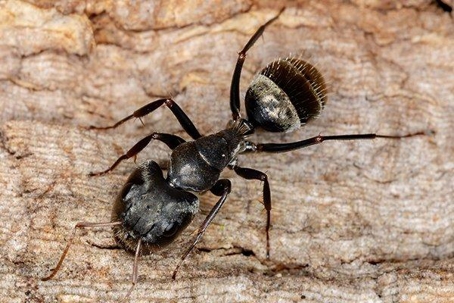Home › Blog › What You Should Know If You're Seeing Carpenter Ants Around Your South Carolina Property
What You Should Know If You're Seeing Carpenter Ants Around Your South Carolina Property
11/12/2020
When you buy a new house, they warn you about the termites. They offer special deals for recent home buyers and explain to you how severe the dangers can be. They make it seem like protecting your home from termites will guarantee the wooden structures of your home’s foundation are safe.
However, carpenter ants are just as prevalent in our great state of South Carolina. While they don’t do quite as much damage as termites can, carpenter ants can threaten your property in multiple ways, so they’re not to be cast aside.
Double-Threat Pests
Carpenter ants are one of the largest species of ants in the continental United States. That’s their most distinguishing factor! Since they’re mostly black or dark red in color, they look like any other ant, for the most part. However, many of them can grow to nearly a half-inch long. Also, many carpenter ants have wings that allow them to hunt for food and travel quickly to and from the queen of the colony, to reproduce and recolonize very effectively.
Carpenter ants ideal nesting habitat is wood softened by moisture damage. Carpenter ants may not damage wood as quickly as termites can, but they can rack the damage up over time and still leave you with costly repairs. However, unlike termites, they don’t actually eat the wood they ruin. On the contrary, instead of eating the wooden structures in your home, they’ll use the wood for nest-building and as they expel excess wood out of the nests you can spot it on your floors. While it may seem like a positive that they aren’t eating your home, they still need to eat something. That means they’re going to scavenge in your stored food supplies, putting your food at risk of contamination.
Spotting The Signs Early
Carpenter ants will travel a long way from their colony to look for nesting areas or food sources, so you may see a few on your property from time to time. That doesn’t always mean you have an infestation. However, once carpenter ants begin nesting in your home, the infestation can get out of hand in a hurry. That’s why it’s very important to recognize the signs of infestation early on. Signs of carpenter ant activity include:
- Groups of large ants: They will seem more focused on your walls than your pantry.
- Piled up sawdust and debris: Look under the wooden structures in your home. Keep an eye out for this near the baseboards under window sills, doors, and doorframes.
- Trails of large ants: Ant like traveling into or away from your house. If they aren’t satisfied with the food supplies in your house, they’ll travel off the property to find more while still nesting within your walls.
- Clicking noises in the walls: This is a result of their nesting habits. As they’re hard at work scraping through the wood within your walls, they can do serious damage to the structural integrity of the home.
- Winged ants: Chances are, if you’re seeing large ants flying around, they’re carpenter ants.
You’ll also be able to notice the wings that they’ll shed on the ground outside of the home.
Once you notice an infestation, they are nearly impossible to get rid of. The Internet might suggest sprays or powders you can sprinkle around, but these often lead to inconsistent results. As you fiddle around wasting your money on home remedies, these ants are scraping out more and more of your home’s foundation. Why risk the cost when you can get rid of them for good? Contact the professionals at The Original Bugman Elimination, Inc. at the first sign of carpenter ants.
Schedule Your Free Inspection
Complete the form below to schedule your no obligation inspection.
Customer Reviews
Bugman Pest Elimination has done a fantastic job for us. Their technicians are extremely respectful of our time and our clients. We have a couple different pest control companies working for us but I can say that Bugman has been by far the best experience we have had. Thank you!
Bill Hrisko
South, Carolina


